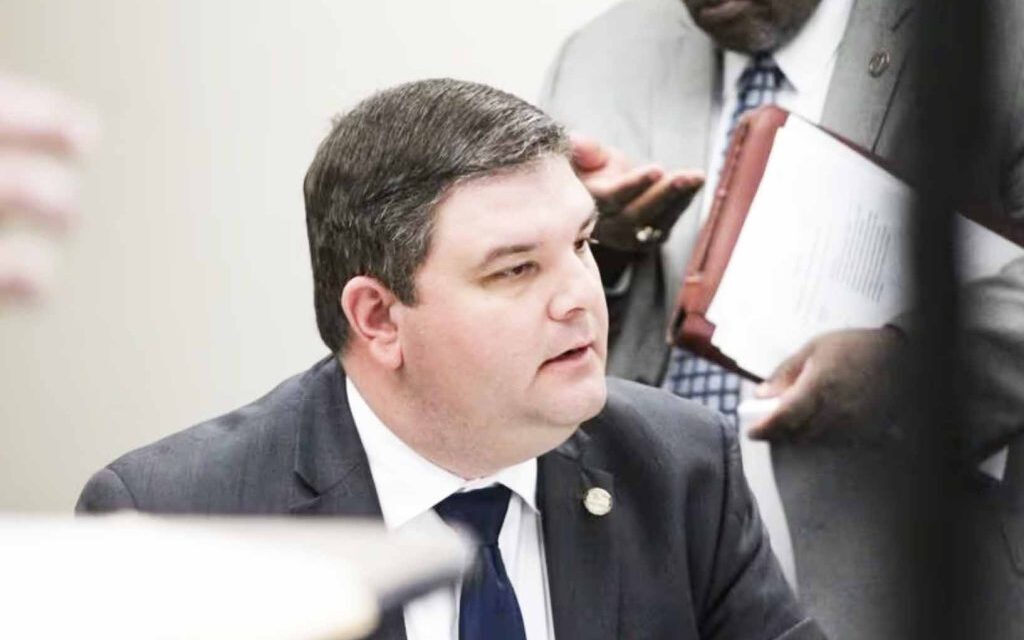This is an opinion column.
When Republicans swept into office on a massive red wave and took control of the Alabama Legislature in 2010, they did so with the promise to make the state’s ethics laws the toughest in the country.
They delivered on that promise, passing those reforms in a special session.
A promise made. A promise kept.
And a promise lawmakers have been trying to claw back ever since those reforms ensnared one of their own, former Alabama House Speaker Mike Hubbard. He went to prison in 2016 for breaking the very laws he helped get passed.
The last time lawmakers tried to upend the state ethics law in 2019, their proposal would have made gifts to public officials legal again and have made bribery a misdemeanor.
This time around, lawmakers seem to be taking an equally subtle approach — making ethics crimes not crimes anymore.
The Alabama Ethics Commission is charged with holding public officials accountable. But a draft bill being circulated among lawmakers and shared in a committee meeting this week would strip the commission of much of its authority, make its director beholden to lawmakers and turn things that are currently crimes punishable with time to prison into civil offenses and reprimands.
Don’t take my word for it. Just read what it says in the bill’s own description of what it does.
“This bill would remove all criminal penalties from the ethics code and would authorize the commission to impose private censures, public reprimands, civil penalties, and restitution,” it says.
That’s right. Private censures and public reprimands for things that currently carry time behind bars.
The language of the bill is simple enough, but I’m not a lawyer. So I called someone who is to make sure I was reading it right. Before Matt Hart was a defense attorney in private practice, he was one of the state’s toughest corruption prosecutors, having put many officials behind bars, including Hubbard.
Hart had already read the draft when I called him.
“There are numerous things that are illegal under the law that would be legal under this bill,” Hart told me.
For instance, the law today prohibits public officials from doing things that would unduly benefit a family member. But who counts as a family member? The draft bill narrows that to spouses and dependent children.
In other words, if you’re a public official and you give a no-bid contract to your kid, so long as that kid doesn’t live in your house or eat your food, you’re in the clear.
And while we’re passing public wealth around the family tree, there’s nothing here to stop public officials from throwing a little business to mom or dad, or even that annoying brother-in-law.
This bill makes legit all deals with brother-in-laws and cousins and nephews.
Heck, siblings aren’t covered, either, so officials can make deals with their brothers and sisters, too, and cut out the matrimonial middlemen.
If the Alabama Ethics Commission doesn’t like it, I guess they could censure away. Like that’s going to do a lot of good.
Credentialed as he is, I didn’t want to rest on Hart alone. So I called a former lawmaker who hasn’t always seen eye-to-eye with Hart, former state Rep. Mike Ball.
Ball was a friend of Hubbard and didn’t think Hart had treated his friend fairly when Hart prosecuted and convicted him. The two of them rarely agree, and unless you have a lot of time to kill, don’t even mention one around the other.
Nonetheless, Ball also says he thinks the bill, as drafted, is bad.
“If I were still in the Legislature, I wouldn’t let this bill out of my committee,” Ball said.
Ball believes the state needs an independent Ethics Commission to hold public officials accountable. This bill leaves the commission exposed to the whims and retaliation of lawmakers.
It would empower the Legislature to remove commissioners who it doesn’t like, give lawmakers approval power over new commission directors when they’re hired and let lawmakers revisit those approvals every five years.
In short, if the director of the Ethics Commission, or the commission itself, does something to upset lawmakers, they could get fired.
I called the lawmaker spearheading this effort, state Rep. Matt Simpson, R-Daphne, to ask him why he thought any of this was necessary.
Simpson told me the draft bill makes the ethics law stronger.
When I pointed out the bill would make it open season for public contracts between officials and their non-dependant family members, Simpson conceded that maybe it had gone too far in narrowing the law.
“That’s why we put this draft out there, so people can give their feedback and we can fix any problems with it,” he said.
But, the thing is, the brother-in-law problem wasn’t an oversight. Whoever wrote this bill deliberately narrowed it and you don’t need a law license to figure that out.
Simpson and I spent the better part of half an hour talking in circles about what his bill does. Simpson argued that the bill would protect against a “rogue” ethics commission abusing its powers. He criticized the secret informal opinions the commission gives public officials seeking clarity on the law.
I happen to hate these secret opinions, too, and think they should be public, and I was relieved that Simpson and I found something we could agree on.
The trouble is, Simpson’s bill would still allow those secret opinions. It doesn’t even fix the things Simpson says are wrong with the Ethics Commission.
Ethics laws, Simpson said, are difficult for public officials and employees to understand and a burden on teachers, and firefighters and so on.
But the only folks I ever hear fussing about it aren’t firefighters. I’ve never had a teacher call to fuss about the law or email me a question about an ethical quandary.
Only lawmakers, lobbyists and the people who pay them.
The Alabama Legislature did something right in 2010. It put consequences in place for unethical public officials and constant reminders they’re playing with the public’s money.
For the most part, the law has worked. Just ask Mike Hubbard.
But Simpson is right about it being time for the Legislature to do something different.
And they can start by leaving the law alone.












